In connection with the annual celebration in September each year, Aarhus University confers five honorary doctorates on researchers from other institutions with whom the university enjoys particularly close and valued working relationships. These working relationships include research, teaching and professional networks, and contribute to establishing strong links between Aarhus University and cutting-edge international research.
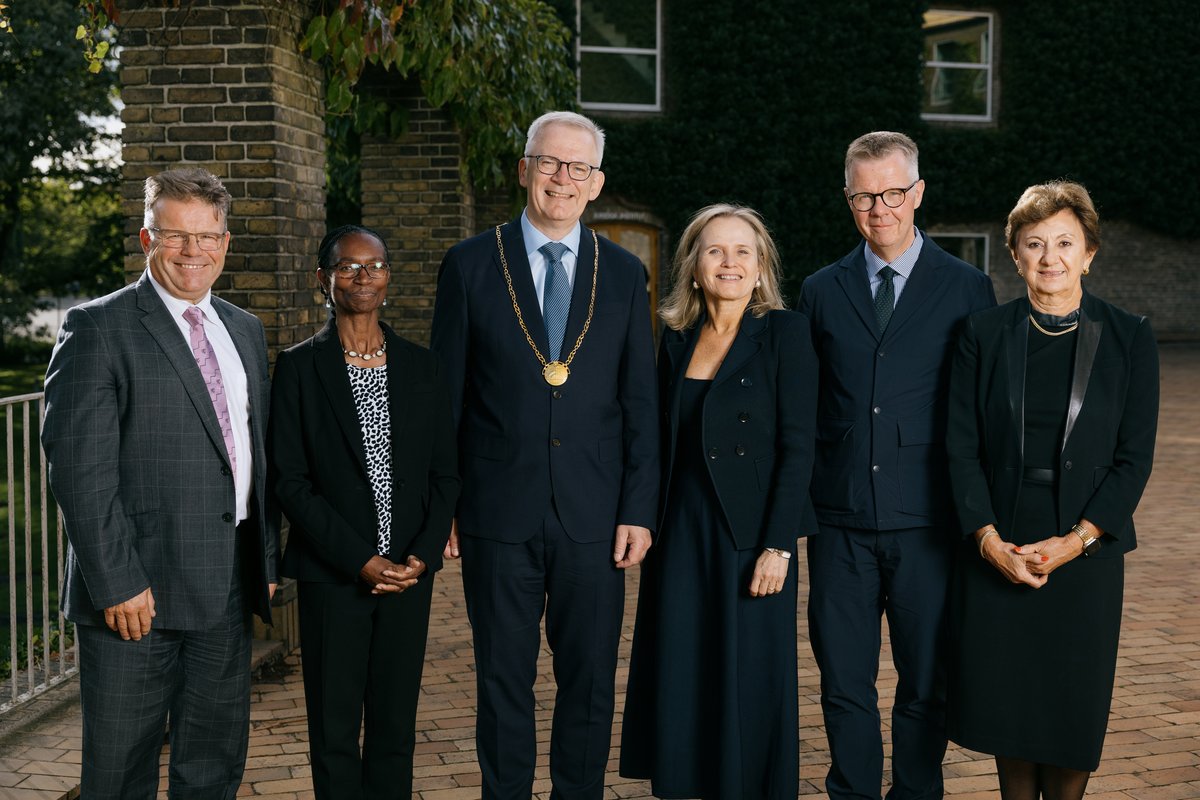
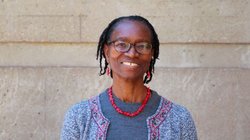
Professor Ann Phoenix is internationally recognised for her ground-breaking work on social psychology, gender and ethnicity. Her research focuses on social identities, intersectionality, psychosocial processes and the formation of identity. Her research has contributed to a deeper understanding of how multiple dimensions of identity influence people's lives, including how young people construct their identities in different social and cultural contexts.
In 2014, Phoenix was named a Fellow of the British Academy, an honour conferred on researchers who have made a particularly outstanding contribution to the humanities and social sciences.
Professor Phoenix has close links to the Danish School of Education (DPU), where she was named affiliated professor in 2020. She has contributed significantly to DPU's research activities, presented at several seminars and hosted a number of DPU researchers at her own department at University College London.
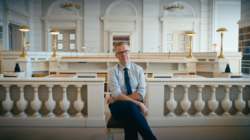
Supreme Court Justice Jørgen Steen Sørensen has made a significant contribution to jurisprudence. In addition to his work as ombudsman and judge, he has served as Denmark’s representative on the Venice Commission of the Council of Europe, a member of the Board of Directors of the Nordic Lawyers' Meetings, a member of the editorial committee of the journal Juristen and chairman of the board of Copenhagen Legal Aid. Sørensen has also authored numerous articles on a wide range of topics, from constitutional and administrative law to human rights and criminal law. He has also co-authored a variety of legal commentaries.
From 2016-2021, Jørgen Steen Sørensen served as affiliated professor of law at Aarhus University, and over the years he has given numerous lectures and worked as a co-examiner.
Read more on Supreme Court Justice Jørgen Steen Sørensen’s personal website
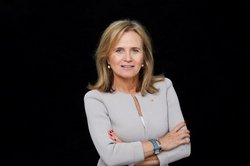
Professor Sharon Lewin is an internationally respected infectious diseases researcher who is the inaugural director of the Doherty Institute for Infection and Immunity in Melbourne, Australia. Here she heads a team of 900 researchers and clinicians who work with preventing, treating and developing cures for infectious diseases such as HIV.
Lewin played an important role in the global response to the COVID-19 pandemic. She was part of the team that succeeded in isolated the SARS-CoV2, which helped over 35 labs develop new diagnostic and therapeutic approaches to COVID-19 in the early stages of the pandemic.
Lewin has made a profound contribution to HIV research, including the development of a global scientific strategy for the development of a cure for HIV. She is president of the International AIDS Society, which has more than 17,000 members worldwide.
Sharon Lewin's almost 25-year collaboration with the Department of Infectious Diseases at Aarhus University Hospital has resulted in 36 joint scientific publications, several ongoing clinical trials and research stays.
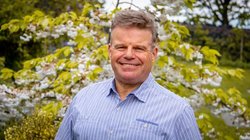
Professor Anthony J. Ryan's pioneering research into polymer chemistry has had a major impact on sustainability. One example of the projects he has engaged in is a UNHCR project to help the 80,000 refugees in the Za'atari camp in Jordan grow their own food. For legal reasons, the refugees couldn’t get permission to cultivate the land, which would have been impossible in any case due to water scarcity and soil salination.
Anthony J. Ryan spearheaded the development of a solution that enabled refugees to use old polyurethane mattresses as a growth medium – a kind of ‘synthetic soil’. This turned out to be a good way of growing vegetables that also minimised water consumption. This low-tech approach is now being adopted at other camps.
Anthony J. Ryan is Director of the Grantham Centre for Sustainable Futures at the University of Sheffield and leads the university's sustainability research. He has previously served as both head of department and pro-rector and has over 27,000 citations in Web of Science.
Anthony J. Ryan has close connections to iNANO at Aarhus University in particular, where he participates in research collaborations and has given lectures.
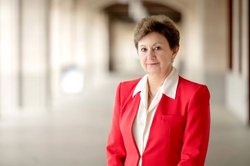
Professor Anne S Kiremidjian has made notable contributions to the field of civil and environmental engineering, with a focus on resilience modelling and risk assessment of earthquakes.
Anne S Kiremidjian’s work has revolutionised the way we understand and mitigate seismic hazards. She and her team were behind the development the first seismic hazard maps of California, which set a standard for future hazard maps. Her pioneering work has crossed national borders: she has led seismic hazard mapping for several Central American countries and influenced earthquake-resilience design of critical facilities in these regions. Her research has helped protect communities around the world.
Anne S Kiremidjian has a productive collaboration with with the Department of Civil and Architectural Engineering which has resulted in several influential publications, lectures and study abroad opportunities for students in both Denmark and the United States. Anne S. Kiremidjian has also served as an external, independent evaluator of the department, contributing to its ongoing development.
We are living in a high-speed society in which the modern individual feels alienated. It is therefore important that we work towards a society with more opportunities for resonance, where the world is able to speak to us in many different ways – and where we are also able to open ourselves to the spiritual dimension.
These are some of the thoughts of the esteemed German sociologist Hartmut Rosa from the Friedrich Schiller University in Jena. Hartmut Rosa has written several books about time, acceleration and resonance in late modernity. His groundbreaking ideas have been applied in a wide variety of disciplines, including anthropological studies of modern medicine, theology, aesthetics, media and cultural studies, philosophy and education.
Hartmut Rosa has a strong connection to the humanities research environments at Aarhus University, which he has visited on several occasions as a keynote conference speaker. On 14 September 2023, Hartmut Rosa will return to Aarhus University to hold a presentation as part of the Future Lecture Series.
Deborah Stone from Brandeis University in the USA is one of the world’s leading researchers in policy, in particular health policy. Her most well-known book is entitled Policy Paradox: The Art of Political Decision Making and is widely recognised as one of the best introductions to the subject. It has been translated into Mandarin, Japanese, Ukrainian, Hungarian, Spanish and Lithuanian.
Deborah Stone’s research has been pivotal in helping researchers around the globe become aware of the importance of narratives, metaphors and figures in political debates and processes. She has received numerous awards and is a regular contributor to public debate.
Since 2010, Deborah Stone has been an affiliated professor at the Department of Political Science at Aarhus University. She has conducted several research stays at the department, during which she has taught Master’s degree students and collaborated with many of the department’s researchers.
How should we deal with bias in epidemiological and clinical research? By developing a theoretical and mathematical basis for bias analyses, the leading American epidemiologist Timothy L. Lash from Emory University has provided a number of answers to this important question.
He has also made significant contributions within cancer epidemiology and is the main author of the most used and cited textbooks on epidemiology across the world: Modern Epidemiology and Applying Quantitative Bias Analysis to Epi-demiologic Data.
Timothy L. Lash has close ties to Aarhus University, where he is an affiliated professor. He has published more than 160 articles in collaboration with AU researchers on topics ranging from bias analyses to breast cancer. In addition to his affiliation with the Department of Clinical Epidemiology, Timothy L. Lash has collaborated with several clinical departments at Aarhus University Hospital, including the Department of Oncology, the Department of Molecular Medicine, the Department of Hepatology and Gastroenterology, and the Department of Cardiology.
Professor Elena Conti is the director of the Max Planck Institute of Biochemistry in Germany and stands out as one of the best structural biologists of her generation. She has conducted pivotal research on the turnover of RNA – the chain-shaped macromolecule that is an important component in the cells of all organisms.
Elena Conti has published several influential scientific articles, many of which have featured in the prestigious journals Cell and Nature. Throughout her career she has received many awards, including the Leibniz Prize in 2008, the Sir Hans Krebs Medal in 2011, and the Gregori Aminoff Prize in 2022.
Elena Conti has collaborated closely with researchers and students at Aarhus University for many years. She has visited the university on many occasions to present her work, including as part of the Kjeldgaard Lectures at the Department of Molecular Biology and Genetics.
Microchip design is recognised as an important topic around the world, and Professor Kaushik Roy from Purdue University in the USA has provided crucial research insights on the subject. He is one of the world’s leading researchers in low-power and energy-efficient circuit and system design, and his current research focuses on cognitive algorithms as well as circuits and architecture for energy-efficient machine learning.
Professor Kaushik Roy is the director of the Center of Brain Inspired Computing, which involves nine universities, and he has received several awards throughout his career.
Professor Kaushik Roy collaborates closely with researchers at Aarhus University and is part of the advisory board for the SPINAGE research project, which is developing a completely new computer system that mimics the human brain. His honorary doctorate will enable him to further expand this collaboration within the area of brain-inspired technologies.
If we can talk of superstars within international anthropology, Professor Anna Tsing from the University of California is certainly one of them. She is a leading figure within areas such as globalisation, the environment and climate, capitalism, feminism and power, and her research is in an international class of its own. Her work investigates one of the most important questions of our time: how people can change the planet’s environment, atmosphere and ecosystems.
Anna Tsing is a recognised and frequently cited pioneer within multispecies ethnography, who rethinks the role of humanity in the climate and biodiversity crises we are currently facing. She does this by studying the social and asocial relationships that people and other species create with each other at a time when technology is changing the world at an accelerating pace.
Anna Tsing has a strong connection to the anthropology department at Aarhus University, which she has visited on many occasions. From 2013 to 2018, she was a Niels Bohr professor and co-director of the AURA research project (Aarhus University Research on the Anthropocene). In these roles, she helped to create a dynamic, international research environment that attracted several international senior researchers and established AU as a flourishing and internationally leading interdisciplinary research community for research on the Anthropocene era.
Professor Jeffrey Smith from the University of Wisconsin-Madison, USA, is one of the world’s leading researchers in econometrics. Through his research, he has helped shed light on the best ways to evaluate initiatives within social and educational policy. For example, his work has provided insight into how employment initiatives work or do not work and for whom they work – an issue that is high on the international agenda and particularly relevant for Denmark at the current time.
Jeffrey Smith is an exemplary mentor who has influenced both early career and senior researchers over many decades. Aarhus enjoys a special place in his heart, and during his many trips to Aarhus University, he has contributed to several PhD courses, held lectures, and participated in conferences, workshops and PhD committees.
His lectures and seminars attract not only researchers but also representatives from government ministries to Aarhus University. He collaborates closely with researchers from the Department of Economics and Business Economics, whom he has also hosted for research stays in the USA.
Professor Michael Baumann is director of the German Cancer Research Center (DKFZ) in Heidelberg, Europe’s largest cancer research institute. He has become internationally recognised within the field of experimental radiotherapy and has played a vital role in the development of individualised radiotherapy, which adapts cancer treatment to the individual patient.
Michael Baumann has enjoyed a close connection to Aarhus University since the 1980s, and he was a prominent member of the international panel that advised the Danish Health Authority to set up the Danish Centre for Particle Therapy (DCPT) in Aarhus in 2012. The DCPT was central to Denmark becoming a world leader in radiation oncology research, and, since 2017, Michael Baumann has been a member of the centre’s Scientific Advisory Board.
Under Michael Baumann’s leadership, the DCPT collaborates closely with leading clinical institutions for cancer research, including the newly established Danish Comprehensive Cancer Center (DCCC), where Aarhus University and Aarhus University Hospital play an important role.
Professor Milica Stojanovic from Northeastern University, USA, is one ofthe world’s leading experts in acoustic underwater communication. Her research has made it possible to transfer data at high speeds under water, so that submersible vessels can coordinate and transfer data on topics such as aquaculture, ecosystems and wastewater.
Research into underwater communication is a vital part of our endeavour to better understand climate change, and it is in this context that Milica Stojanovic’s research plays an essential role.
Milica Stojanovic has strong ties to Aarhus University, where she collaborates with researchers from the Department of Electrical and Computer Engineering on underwater communication. This collaboration has resulted in both patents and publications, and it is likely that it will also be extended to other departments.
Hiroshi Ishiguro (b. 1963) is a professor of robotics at Osaka University in Japan. He is particularly well-known for his work on androids, or humanoid robots. Professor Ishiguro is a leading figure in the interdisciplinary field of social robotics. He is not only a leading figure in the development of increasingly advanced humanoid robots; he also explores fundamental philosophical questions about the nature of humanity through his work.
By exploring how humans interact with the androids he builds, Ishiguro’s work seeks to understand the conditions for love, spirituality and other important dimensions of human life.
For about a decade, Ishiguro has been collaborating with researchers at the Robophilosophy and Integrative Social Robotics research unit under the Department of Philosophy and the History of Ideas at Aarhus University. Since 2012, the research unit has been using humanoid robots developed by Ishiguro in various research projects. The Faculty of Arts also recently began offering a new subsidiary subject, Humanistic Technology Development, in order to encourage humanities students and engineering and technology students to work together. Ishiguro’s visionary interdisciplinary perspective on the development of technology will provide inspiration for this form of cross-faculty collaboration.
Patricia Bauer (b.1957) is a professor of psychology at Emory University in the United States. Bauer has made an outstanding contribution to the field of cognitive development. Her specific focus is on how infants and children develop their earliest memories, particularly on understanding the links between social, cognitive and neurological development.
Bauer’s work on early childhood memory has been published in leading psychology journals and is widely cited. She uses various methods to carry out her research, including eye-tracking and electrophysiological measures. She developed one of the most widely used and accurate methods of studying infants’ memories of early life events, and her research has revealed that children quickly forget the events of the first years of their lives.
Bauer’s connection to Aarhus University was established many years ago, and she works closely with researchers at the Center on Autobiographical Memory Research - CON AMORE under the Department of Psychology and Behavioural Sciences.
Katja Zeppenfeld is a professor of clinical electrophysiology and head of the clinical electrophysiology research and treatment centre in Leiden, The Netherlands. She is one of just a handful of female elite researchers within cardiology, and she is widely recognised as one of the top three researchers within electrophysiology in the world. She publishes in leading cardiology journals and is one of the most widely cited researchers in the field.
Zeppenfeld has contributed to the development of new methods of ablation, a procedure for the treatment of abnormal heart rhythms (arrhythmias) that uses either heat or freezing of the abnormal tissue causing the arrhythmia. She has developed new procedures that combine cardiac-magnetic resonance with ablation, which improves outcomes for patients with arrhythmias.
Zeppenfeld is affiliated with the Department of Cardiology at Aarhus University Hospital as an affiliated professor, and plays a central role at the department. She has extensive clinical experience with ablation of ventricular tachycardia (a life-threatening arrythmia caused by abnormal electrical activity in the lower chambers of the heart. This condition is on the rise, so this specialisation is a high priority at the department.
Conny Aerts (born 1966) is professor of astronomy at KU Leuven, Belgium. She is one of the world’s leading astrophysicists within the subdiscipline of asteroseismology, the study of oscillations in stars. Among other achievements, Aerts has developed theoretical models that allow her to analyse the oscillations of stars to map their internal structures. For over two decades, she has played a leading role in the dramatic development of this field, which recently culminated with the analysis ofthe extensive data produced by space-based telescopes from both the Kepler and TESS missions. Her work has led to ground-breaking insights into the structure and evolution of stars.
Aerts has received several prestigious awards and honours, including the Francqui prize (known as the ‘Belgian Nobel Prize'), which she was the first woman to receive since its inception in 1933.
She works closely with researchers at the Department of Physics and Astronomy on the analysis of data from the Kepler and TESS telescopes, particularly in regard to the inner rotation and composition of heavy stars.
Peter L. Tyack (born 1953) is professor of marine mammal biology at the University of St Andrews, Scotland and Senior Scientist at Woods Hole Oceanographic Institution in the United States. He is the world’s leading expert in how anthropogenic sound affects the behaviour and communication of marine mammals. Tyack’s research and his conviction that decisions must be based on solid science have had enormous resonance outside academia. He has testified before the American Congress several times, advised and headed numerous government commissions and NGOs, and his research has critically shaped the development ofnoise abatement and legislation worldwide.
Tyack is an excellent communicator, and has presented his work to a popular audience in National Geographic as well as through TedTalks and several radio and TV documentaries, among other channels. As the human impact on the marine environment has continued to increase, Tyack’s work has received considerable attention, both from the global scientific community and the press.
Tyack has had ties to Aarhus University for over 30 years. He has collaborated closely with the Department of Biology in particular, both as a researcher and an educator. Currently, Tyack and the department are working on a major research project funded by the American navy to study echolocation in toothed whales.